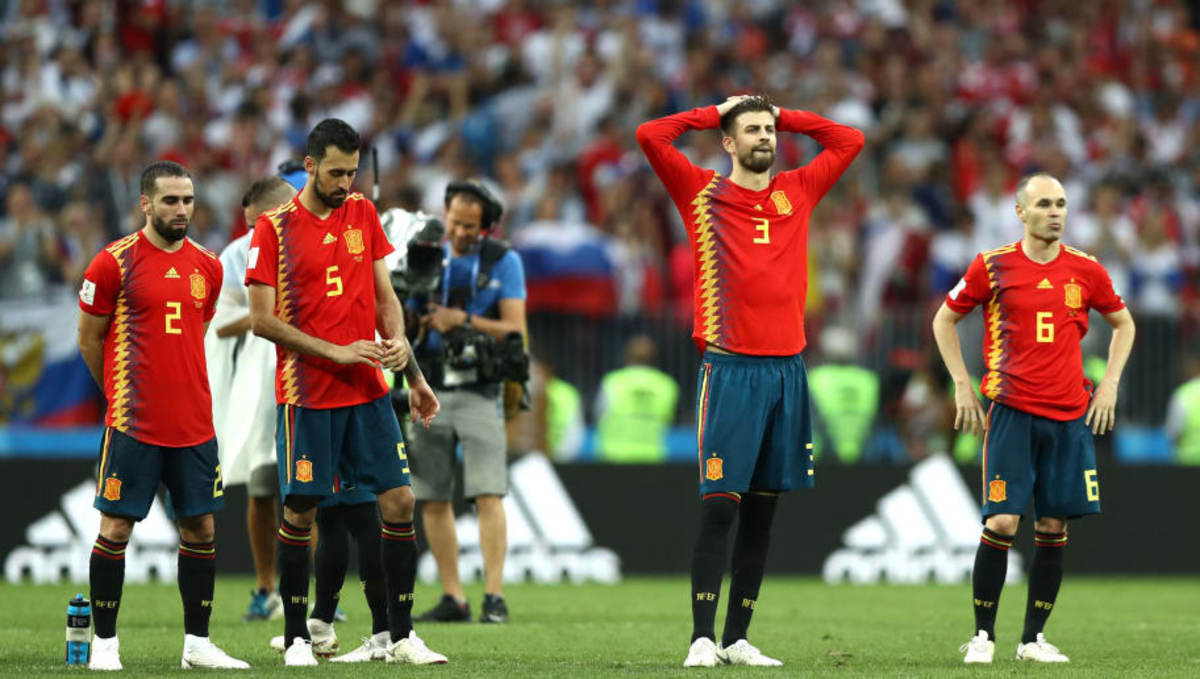Spain Are Back! Why the Last 3 Major Tournaments Aren't a Blip for Football's Great Underachievers

There comes a point when you can't keep writing off early tournament exits as freak results. In the case of Spain - who were stunned by hosts Russia in the last 16 of this year's FIFA World Cup - we've definitely reached that point.
After achieving an unprecedented level of global footballing dominance from 2008 to 2012 - during which they won two successive European Championships and a World Cup - La Roja have now failed to reach the last eight in three successive tournaments. Like England, they didn't even get out of their group at the 2014 World Cup.
Admittedly, Spain were on the wrong end of a rather freakish result in that tournament. The Netherlands gave arguably their most impressive performance in a World Cup match since Johan Cruyff's Oranje tormented Brazil in 1974. The holders were also in a tough group - facing the skilful Chileans straight after their 5-1 defeat by the Dutch was hardly ideal.
Then came the 2016 European Championship, where Spain were eliminated by Italy in the last 16. Their 2-0 defeat is generally attributed to a brilliant display by I Azzurri, which was also a tactical triumph for Italy manager Antonio Conte.
Still, to paraphrase Oscar Wilde, to make one early exit from a major tournament looks like misfortune. To make two early exits in a row looks like carelessness. If you make three in a row, then you have to accept that early exits are no longer the exception - they're the rule.
Of course, this doesn't make Spain's penalty shootout defeat by Russia any less shocking. It's difficult to think of a single Russian player who would make it into Spain's squad, never mind their starting lineup.
Nevertheless, there's nothing radically new about Spain's displays in the last two World Cups and the last European Championship. They've just gone back to being...well, Spain, really. Before their golden era began in 2008, underachievement was very much the norm.
La Roja enjoyed more success in European Championships than World Cups, winning the Euros in 1964 and reaching the final in 1984. Yet they rarely excelled in either tournament.
When they reached the semi final of the 2010 World Cup on their way to winning it, it was their first appearance in the last four of a World Cup since 1950 - an incredibly poor record for a footballing nation of Spain's calibre.
When the Spain national team started winning tournaments regularly in 2008, it seemed that they had finally found a system which enabled their highly talented players to flourish on the international stage. So what's changed since 2012? Why have Spain reverted to type?
Perhaps one problem is that Spain's opponents have worked out effective ways of neutralising their patient, possession-based 'tika-taka' approach. Also, the sacking of manager Julen Lopetegui just two days before Spain's opener against Portugal can't have helped their preparations for this year's World Cup.
Yet neither of these points adequately explains why La Roja were so disappointing in Russia. Their scintillating 3-3 draw with Portugal turned out to be the highlight of Spain's tournament. All three of their subsequent opponents - Iran, Morocco and Russia - were eminently beatable. And yet, under their hastily appointed new manager Fernando Hierro, the 2010 World Cup winners triumphed in just one of those clashes.
It would be too easy to criticise Russia for their 'bus parking' tactics in the last 16. With creative players like Andrés Iniesta and Isco, the Spanish should have been able to unlock a Russian side that can reasonably be described as 'bang average'. And yet they showed a staggering lack of urgency or invention, until it was almost certainly too late to avoid the lottery of penalties.
Whichever way you look it at, it seems that Spain's 'Golden Era' is well and truly over. Still, it was a wonderful blip while it lasted.









